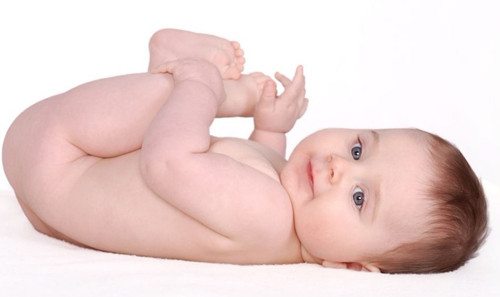CNN News:婴儿如何学习?
- 参考译文
- 听力原文
How we interpret touch, how we reason, how we learn, it`s all believed to be determined by our cerebrum and doctors say that what our brains encounter in the first five years we`re alive can have this tremendous impact on how we learn later on.
我们如何诠释触摸,如何推理,如何学习,人们认为这一切都是由我们的大脑决定。同时,医生说,在5岁前我们大脑所接触的事物对我们以后的学习会产生重大的影响。
 |
Research looking into babies` brain development shows one thing that can help is the element of surprise.
调查婴儿大脑发育的研究表明惊喜可助于大脑发育。
DR. SANJAY GUPTA, CNN CORRESPONDENT: Scientists believe babies are born with an innate knowledge about the world, with a set of expectations about how the world works.
桑杰·古普塔博士,CNN记者:科学家们认为儿童天生对世界有所了解,也有自己对世界如何运作的期望
What they don`t fully understand yet is how babies will learn more.
但是他们不了解的是婴儿如何学习更多的知识。
GUPTA: Well, there`s some new research out there that was published in the journal "Science" that suggests babies learn best when they are surprised.
古普塔:一些发表在《科学》杂志的最新的研究表明,婴儿在好奇时学习的知识最充分。
For instance, when an object doesn`t behave in a way the baby expects, then they`re going to focus on that object and ultimately learn more about it.
例如,当一个物体没有按照婴儿期望的方式运动,他们就会关注这个物体,最终更多地了解它。
So in this series of experiments, researchers at Johns Hopkins University, they showed 11 month old babies something surprising and also something predictable.
所以,约翰霍普金斯大学的研究者们进行了一系列的实验。在实验中,他们给11个月大的孩子展示一些有趣的事物和一些可预测的事物。
One group of babies, for example, saw a ball like this roll down a ramp and get stopped by a wall. That was predictable.
例如,一组婴儿看见球滚下斜坡,撞墙后停止。这件事是可预测的。
Another group saw that same ball roll down the ramp and then pass through the wall, as if by magic. That was unexpected. That was surprising.
另外一组看见同样的球从斜坡滚下,然后好像变魔术似的,穿过了墙。这是出乎意料的,很奇怪。
Or how about a toy train?
如果是一辆玩具火车呢?
A toy train is expected to roll on a table like this.
预计玩具火车在桌子上应该是这样行走。
But what if when it got to the end of the table, it just kept going?
但是,如果到达了桌子边缘,火车继续行走呢?
That would be surprising to the baby. And scientists believe that babies` play is linked to learning.
这对婴儿来说是很新奇的。科学家们认为婴儿的玩耍是和学习相关的。
UNIDENTIFIED FEMALE: Ready?
声音:准备好了吗?
GUPTA: To test that theory, researchers at Johns Hopkins then gave the babies the objects to play with. The babies who saw the ball pass through the wall, they were more interested in playing with that ball afterwards than the babies who saw it roll to a stop.
古普塔:为了检测该理论的正确性,约翰霍普金斯大学的研究者们将物品给婴儿们玩耍。与看见球撞墙后停止运动的婴儿相比,第二组婴儿对玩这个球更感兴趣。
The babies were also more inclined to bang the ball against their hands and then bang the ball against the table to see if the ball was, in fact, solid.
他们也更喜欢用手掌拍球,然后在桌子上拍球,想要看看,球到底是不是实心的。
Look, whether it`s a magical ball or perhaps a flying train, provide the unexpected and kids are going to be more likely to learn.
瞧!无论它是一个神奇的球或者飞车,提供给婴儿出乎意料的事物,他们会更容易学习。
How we interpret touch, how we reason, how we learn, it`s all believed to be determined by our cerebrum and doctors say that what our brains encounter in the first five years we`re alive can have this tremendous impact on how we learn later on.
Research looking into babies` brain development shows one thing that can help is the element of surprise.
DR. SANJAY GUPTA, CNN CORRESPONDENT: Scientists believe babies are born with an innate knowledge about the world, with a set of expectations about how the world works.
What they don`t fully understand yet is how babies will learn more.
GUPTA: Well, there`s some new research out there that was published in the journal "Science" that suggests babies learn best when they are surprised.
For instance, when an object doesn`t behave in a way the baby expects, then they`re going to focus on that object and ultimately learn more about it.
 |
So in this series of experiments, researchers at Johns Hopkins University, they showed 11 month old babies something surprising and also something predictable.
One group of babies, for example, saw a ball like this roll down a ramp and get stopped by a wall. That was predictable.
Another group saw that same ball roll down the ramp and then pass through the wall, as if by magic. That was unexpected. That was surprising.
Or how about a toy train?
A toy train is expected to roll on a table like this.
But what if when it got to the end of the table, it just kept going?
That would be surprising to the baby. And scientists believe that babies` play is linked to learning.
UNIDENTIFIED FEMALE: Ready?
GUPTA: To test that theory, researchers at Johns Hopkins then gave the babies the objects to play with. The babies who saw the ball pass through the wall, they were more interested in playing with that ball afterwards than the babies who saw it roll to a stop.
The babies were also more inclined to bang the ball against their hands and then bang the ball against the table to see if the ball was, in fact, solid.
Look, whether it`s a magical ball or perhaps a flying train, provide the unexpected and kids are going to be more likely to learn.
- 频道推荐
- |
- 全站推荐
- 推荐下载
- 网站推荐




















